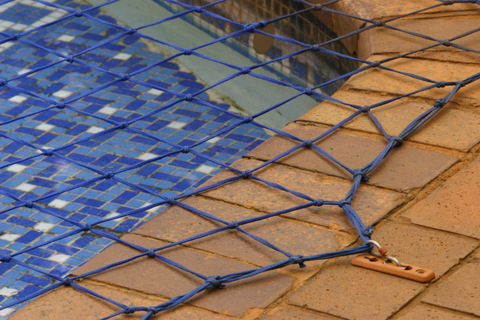

Guidelines for submitting articles to Santa Rosalia Today
Hello, and thank you for choosing Santa Rosalia.Today to publicise your organisation’s info or event.
Santa Rosalia Today is a website set up by Murcia Today specifically for residents of the urbanisation in Southwest Murcia, providing news and information on what’s happening in the local area, which is the largest English-speaking expat area in the Region of Murcia.
When submitting text to be included on Santa Rosalia Today, please abide by the following guidelines so we can upload your article as swiftly as possible:
Send an email to editor@spaintodayonline.com or contact@murciatoday.com
Attach the information in a Word Document or Google Doc
Include all relevant points, including:
Who is the organisation running the event?
Where is it happening?
When?
How much does it cost?
Is it necessary to book beforehand, or can people just show up on the day?
…but try not to exceed 300 words
Also attach a photo to illustrate your article, no more than 100kb

Almost all Spanish child pool deaths could be avoided
155 people drowned during July and August in Spain last year
Lack of vigilance, inability to swim and unfenced pools cause tragedies in Spain every summer
 As the summer holidays are set to start and the temperatures throughout Spain begin to rise private and public swimming-pools are being brought into use all over the country, and this is a timely moment to remember that as well as being a pleasurable and almost indispensable part of the summer for many, swimming-pools are also potential death traps, especially for the very young.
As the summer holidays are set to start and the temperatures throughout Spain begin to rise private and public swimming-pools are being brought into use all over the country, and this is a timely moment to remember that as well as being a pleasurable and almost indispensable part of the summer for many, swimming-pools are also potential death traps, especially for the very young.
Every summer the Spanish news is dotted with stories of pool tragedies, and yet it seems that the message just doesn’t get across to everyone: small children CANNOT be left unsupervised by water.
A few facts and statistics serve to illustrate this point:
A baby can drown in 30 centimetres of water, and a child who can’t swim can die of drowning in just 27 seconds.
And yet, every year in Europe (according to the World Health Organization) 5,000 people aged under 18 die of drowning, 70% of them aged under six.
In worldwide terms, drowning is second only to road accidents as the most frequent cause of accidental death by injury in children aged between one and fourteen.
Around a hundred children die of drowning in Spain every year, and in summer these incidents account for 8% of all infant mortality: last year, for example, 24 people aged under eighteen lost their lives in pools, rivers and the sea, and the first week of July alone claimed eight such victims. In all age groups there were 155 deaths by drowning over the two-month period comprising July and August.
As with so many hazards, the best cure is prevention, and data exist to show that the vast majority of these accidents involving children could have been avoided. In a study relating to 2009 and 2010 it was found that 71.7% of child victims didn’t know how to swim, and 97% of them were not wearing any kind of inflatable float when they became victims.
The same study showed that 60% of the accidents occurred in private pools, and that in eight out of ten cases the adults in charge had temporarily relaxed their vigilance.
Statistics show that those most at risk are the under-4 age group, and that apart from death swimming-pools are dangerous places in terms of spinal injuries. Six per cent of such injuries in Spain are caused by swimming accidents (such as slippery surfaces or ill-advised dives).
In general terms the studies show that effective vigilance could have avoided 90% of the accidents, and that teaching children to swim could have prevented 80%, but effective safety measures are also important. In fact, in France there has been a law since 2003 which makes it obligatory for all swimming-pools, both private and public, to be enclosed by fencing. The number of children dying by drowning has fallen by 75% since.
Surely it can only be a matter of time before a similar law is introduced in Spain.
Please read, Lifesaving safety points for bathers
The Ministry of Health issues the following points to bear in mind when using private swimming pools each year and urges users to bear safety in mind, particularly when children and more elderly visitors are visiting.
Holiday users and youngsters. Pools are a big danger for toddlers and young children who have not yet learnt to swim. Floats should always be left in position to give something to grab hold of and toddlers in particular kept well away from open pools.
Shallow water. Death through what is called "lesions" is high in teenagers. 95% of teenage deaths are due to young people diving and jumping into shallow areas of domestic pools, knocking themselves out on the bottom and drowning. Anyone with a sloping pool is urged to ensure that shallow points are clearly marked to avoid these types of accidents. There are also high numbers of accidents caused by young teenagers slipping, running around pools and injuring themselves on pool edges, so the choice of tiles and finish is also mentioned as being of great importance.
Closing off the pool area completely or covering the pool with a rigid pool cover will also minimize the risk of accidents when the pool is not in use.
Most of the accidents involving more elderly people are caused by accidents around the pool, rather than in it. Slipping, tripping, falling around the edge of the pool, then falling into the water are the main problems, rather than accidents in the water, so the advice given is again to ensure non-slip surfaces are used, and not leave any obstacles around the pool which could be tripped over, including plant pots, toys, hosepipes, etc which could be dangerous.
Minor accidents around the pool
Consider all aspects of safety when moving around a pool and positioning seats, tables, chairs etc. Use plastic utensils and not glass- a broken glass or glass bottle can result in not only serious injury, but the need to drain a pool and recover the pieces, a hosepipe left lying across the floor can be lethal, as can toys, clothes left on the floor and suntan oils.
One of the most important pieces of advice is always to have floats in the water in case of accidents and keep a phone handy when the pool is in use.
Sea Bathing.
Cardiac arrest is commonly given as the cause for bathers expiring whilst in the sea, the shock of moving from hot sun to cold water. Bathers of more advanced years are urged to take this into consideration when bathing this summer and the advice given is to always bathe in pairs, particularly in the Mar Menor where shallow water lulls elderly bathers into a false sense of security .
Irrigation embalses or tanks
A final point is the advice given to those who own irrigation embalses or tanks. The slippery plastic sides are extremely dangerous and there are many incidences each year in which both humans and animals drown because they are unable to get out of these embalses.
Last year there was one very sad case in which a man died trying to save his dog and slipped into his own embalse and drowned. The simple provision of having a rope from the railings at the top, trailing down into the water will ensure that anyone accidentally falling into the water will be able to climb out, and would be enough to save a life.
And advice is also given to ensure that these are properly fenced off to minimize accidents.
Image: Copyrighted
















